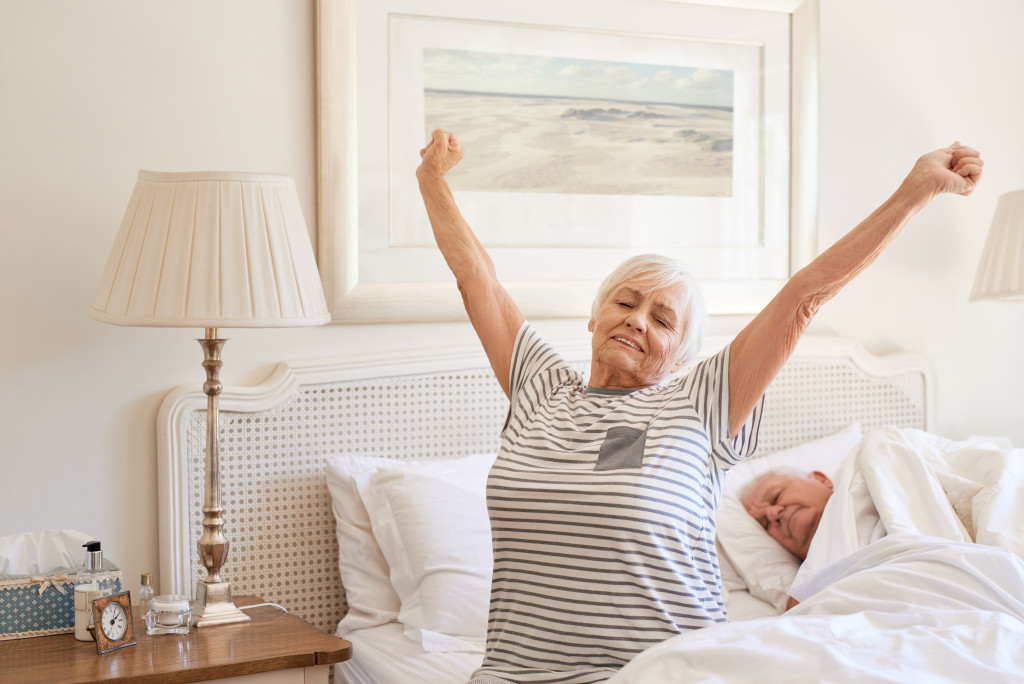- 19% of the U.K. population are seniors facing unique housing challenges such as fixed income.
- The home’s physical environment affects health, safety, and mobility; grab bars, non-slip mats, and adequate lighting promote safety.
- Social amenities like community centers, parks, and recreational facilities promote socialization and good health.
- The emotional environment of the home impacts mental health; natural light, soothing colors, and comfortable furniture can help.
- Home renovations like energy efficiency boosts, extra locks, or surveillance cameras for security and accessibility upgrades ensure independent living.
As people age, their homes become more than just a place to reside; they reflect and extend our lifestyle, identity, and well-being. The physical, social, and emotional aspects of housing largely influence the quality of life of seniors. Here’s what you know about seniors in the U.K., how their homes can affect their lives, and great renovation options to improve their lives at home.
Seniors in The U.K.
The U.K. has one of the highest numbers of seniors in the world. It’s estimated that 19% of the population is 65 and over. Seniors in the U.K. face unique challenges when it comes to housing: many find themselves on fixed incomes. This is why having the right home for your lifestyle is important once you’ve reached seniority. Here’s how your home can affect your life as you grow older:
Physical Health
The physical environment of a senior’s home plays a vital role in their overall health and well-being. A cluttered and poorly lit space can increase the risk of accidents and falls, negatively impacting a senior’s mobility, independence, and confidence.
Home modifications such as grab bars, non-slip mats, and adequate lighting can decrease the risk of falls and promote safety and mobility. Furthermore, seniors with physical disabilities or chronic illnesses may need adaptive equipment, such as stairlifts, to prevent injury and promote freedom of movement.

Social Support
Social isolation and loneliness are prevalent among seniors and can negatively impact their physical and mental health. Living in an environment that promotes socialization and community engagement can improve a senior’s quality of life and promote good health.
For example, seniors living in age-restricted communities or with ample social amenities such as community centers, parks, and recreational facilities are likelier to remain active, social, and healthy. Moreover, having nearby family and friends, or even pets, can provide emotional support and reduce feelings of loneliness.
Emotional Well-being
The emotional environment of a senior’s home can affect their mental health and emotional well-being. A cluttered, loud, or chaotic environment can increase stress and anxiety levels, while a calm, serene, and organized space can promote relaxation and peace of mind.
Home design elements such as natural light, soothing colors, and comfortable furniture can enhance mood and create a therapeutic environment. Additionally, seniors dealing with depression, anxiety, or other mental health issues can benefit from having access to mental health services and counseling.
Lifestyle and Independence
A senior’s lifestyle and independence are closely tied to their home environment. A home that supports and fosters independent living can improve a senior’s quality of life, autonomy, and sense of purpose. Accessible, functional, and easy-to-use home features such as lever-style door handles, walk-in showers, and adjustable-height countertops can promote self-sufficiency and reduce dependence on caregivers. Moreover, smart home devices and telehealth services can enhance seniors’ ability to manage their lives and remain independent.
Extra Home Renovations For a Healthier Life
You must also have renovations that can help you live a healthier life. Here are four options:

More Sunlight
The sun is good for physical and emotional health, so having more natural light in your home is essential. Consider adding more windows to your home to bring in more sunlight. Better yet, consider installing affordable top-rated frameless flat roof lights in your home. These roof lights have a sophisticated, modern look and provide more fresh air and natural light.
Energy Efficiency
Having an energy-efficient home is essential for seniors, as it can help save money on utility bills while also helping the environment. Consider upgrading your home’s HVAC system, windows, insulation, and lighting fixtures. Investing in smart home technology, such as programmable thermostats and motion sensors, can help you use less energy while maintaining a comfortable indoor environment.
Security Upgrades
Safety should be the top priority for seniors living alone or with limited physical mobility. Installing additional locks on doors and windows can increase security in your home. You may also consider upgrading to a monitored alarm system or installing surveillance cameras around the house for extra protection.
Accessibility Features
Making your home more accessible can help you navigate it easily, and it’s an investment that can pay off in the long run. Consider adding ramps to all outside entrances, expanding doorways for wheelchair accessibility, or installing adjustable-height countertops. You may also consider investing in a stairlift for access between levels.
For seniors, their home should be a place of comfort and security that reflects and improves their lifestyle as they age. With the right renovations and modifications, seniors can live comfortably and safely in their homes while improving their physical and emotional well-being.

